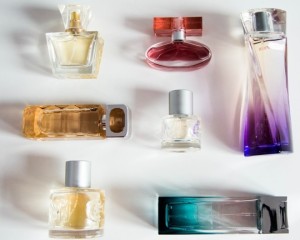There’s been a lot of talk about how bad hormone (or endocrine) disrupting chemicals (HDC) are for our health, but what exactly are they and why are they bad for us?

It’s probably best to start by talking about what our endocrine system is. Our endocrine system is our hormone system, which includes many hormones and glands that impact most of our body’s functions across all our body systems. They influence our reproductive system, our metabolism, and our circulatory system amongst others. Our different hormone functions are also very connected, so we often find that if someone has a problem with one area of hormone function there will be other hormone dysfunctions.
The definition of a HDC is that they impact or disrupt our normal or natural hormone functions, thereby potentially causing dysfunction within our bodies. HDC have similar properties to the receptors and enzymes in our bodies that stimulate the hormonal response, and so are sometimes called hormone-mimicking chemicals. Whilst initially most of the evidence of this was connected to effects on the reproductive systems, it now appears that these chemicals may impact all of our hormonal functions.
Some HDC are easily stored in our bodies. They are particularly harmful because our hormones respond at very low levels; with recent research indicating even one exposure can create problems in just a few hours. The potential health implications of these chemicals are many and varied and include (but not limited to):
- Neurodevelopmental disorders
- Thyroid disorders
- Weight, obesity and diabetes
- Reproductive issues such as fertility problems including low sperm count, and early puberty
- Behavioural problems such as ADHD
- Certain cancers including breast cancer
- Blood pressure
- Oestrogen dominance (which has a huge range of health effects)
HDC are ubiquitous in our world now, so it may not actually be possible to avoid them all together. These chemicals appear in our food and so many everyday products including most plastic containers and water bottles (plasticisers), baby’s bottles, baby pacifiers, plastic toys, lining of food cans, PVC pipes and floors, perfumes / fragrance (not just in perfume), cleaning products, papers such as receipts you get in a shop, oranophosphate and organochlorine pesticides, some sunscreens, cosmetics including make up.
In addition to the many effects on human health, they can also have a detrimental effect on the environment. Some of them are able to accumulate in the environment, and can cause serious problems for wildlife populations including reproductive effects. It’s also widely acknowledged that the widespread accumulation of plastics in the environment is having a detrimental impact.
In Australia we have a number of regulatory and marketing issues around these chemicals, for example:
- Bisphenol A is still allowed in baby’s bottles despite them being banned in many other countries including Canada and even the US – when heated these chemicals leach into food to a much greater extent and BPA specifically mimics the effects of oestrogen in our bodies.
- Products marketed as BPA free will almost always have an alternative such as BPS, which has just as much or even a greater hormone effect as BPA
- We have a sad lack of labelling regulations in Australia particularly in relation to cleaning and personal care products so that the manufacturers are protected over consumers. For example perfume and fragrance can contain hundreds of chemicals but can just list that one word on the ingredients, perfume contains HDC
- We have a lack of regulations regarding reporting of pesticides in Australia, so it is difficult to understand where and how much is being used
- Pink washing is being used by a number of organisations that have products with high levels of HDC, yet they market themselves as being part of the fight against breast cancer (beauty products, water bottles etc.)
It’s therefore very important that we all start to reduce our exposure to toxins in our environment and life, particularly these HDC. Here are some simple ways to reduce your exposure to endocrine disrupting chemicals:
- Only use glass to store food and for drinking especially with baby’s bottles, or otherwise stainless steel
- If you do use plastics use numbers 5, 2 or 4 (on the bottom of the bottle), and never heat food in plastic
- Don’t buy canned foods that use plastic linings – it is very likely that BPA or BPS will have leached into these foods. Instead use fresh fruits and vegetables, if you really need to frozen is better than cans lined with BPA
- Say no to receipts, tickets etc. that use thermal paper as much as you can
- Don’t use plastic wraps, instead use glass storage containers
- Don’t buy cleaning products or personal care products that contain perfume or fragrance, also don’t use air fresheners or antibacterial products
- Don’t buy furnishings, clothes and other products with flame retardants in them
Reducing your overall long-term exposure to environmental toxins is the most beneficial thing you can do in relation to reducing toxicity in your body. Doing a detoxification programme that doesn’t address these things can be useless, because the intake of toxins continues (read more about the effectiveness of detoxification programmes here). Fortunately there are many simple changes you can make over time that can have a huge impact on your health.
